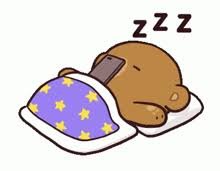Oklahoma was busted for playing an ineligible player in 1972 whose HS transcripts were doctored to qualify for a scholarship. In self-reporting the violation to the NCAA, Oklahoma voluntarily forfeited eight (8) games in which the player played. The NCAA later penalized the program by reducing scholarships, TV appearances and bowl appearances. Owing to the forefitures, the Big 8 gave the 1972 Big 8 title to Nebraska.
Oklahoma later reclaimed the 8 games and the Big 8 title. Yet, the rule against fraudulent transcripts remains and there is no constitutional right to doctor transcripts. It's a violation and always has been. (Oklahoma claims the 1974 AP National Champioship although they were bowl ineligible.)
The U.S. Supreme Court unanimously ruled in June 2021 that the NCAA could not prohibit college athletes from profiting from their name, image, and likeness (NIL) through third-party deals. This decision, stemming from an antitrust challenge to the NCAA's amateurism rules, found the NCAA is subject to U.S. antitrust laws and must comply with them. Consequently, the NCAA repealed it's illegal rules, and thus permitted athletes to earn NIL income.
The applicable Federal antitrust law was enacted in 1890 (Sherman Act; Sherman Antitrust Act - Wikipedia), prohibiting 1) anticompetitive agreements and 2) unilateral conduct that monopolizes or attempts to monopolize the relevant market. Accordingly, to the extent the NCAA enacted and enforced anticompetitive and/or monopolistic rules, they were illegal ab initio (from the beginning). Meaning that Tennessee did not violate any legally enforceable rules when players were paid and any agreement Tennessee entered into by which it accepted a penalty therefor is invalid.
Contracts involving illegal activities are automatically void and cannot be enforced in any court. Meaning parties have no legal recourse if disputes arise. Even if one party has performed their part of the agreement, the contract remains unenforceable because it is based on an illegal purpose. Accordingly, Tennessee may and should unilaterally recognize the 11 wins that they agreed to vacate pursuant to an illegal penalty and agreement foisted upon them by the NCAA.
Had the NCAA been in compliance with antritrust law, payment would have been permissible in one structure or another (e.g., NIL).
Unlike Oklahoma, which has no law or legal authority supporting its reclamation of forfeited games and titles, Tennessee does.
Oklahoma later reclaimed the 8 games and the Big 8 title. Yet, the rule against fraudulent transcripts remains and there is no constitutional right to doctor transcripts. It's a violation and always has been. (Oklahoma claims the 1974 AP National Champioship although they were bowl ineligible.)
The U.S. Supreme Court unanimously ruled in June 2021 that the NCAA could not prohibit college athletes from profiting from their name, image, and likeness (NIL) through third-party deals. This decision, stemming from an antitrust challenge to the NCAA's amateurism rules, found the NCAA is subject to U.S. antitrust laws and must comply with them. Consequently, the NCAA repealed it's illegal rules, and thus permitted athletes to earn NIL income.
The applicable Federal antitrust law was enacted in 1890 (Sherman Act; Sherman Antitrust Act - Wikipedia), prohibiting 1) anticompetitive agreements and 2) unilateral conduct that monopolizes or attempts to monopolize the relevant market. Accordingly, to the extent the NCAA enacted and enforced anticompetitive and/or monopolistic rules, they were illegal ab initio (from the beginning). Meaning that Tennessee did not violate any legally enforceable rules when players were paid and any agreement Tennessee entered into by which it accepted a penalty therefor is invalid.
Contracts involving illegal activities are automatically void and cannot be enforced in any court. Meaning parties have no legal recourse if disputes arise. Even if one party has performed their part of the agreement, the contract remains unenforceable because it is based on an illegal purpose. Accordingly, Tennessee may and should unilaterally recognize the 11 wins that they agreed to vacate pursuant to an illegal penalty and agreement foisted upon them by the NCAA.
Had the NCAA been in compliance with antritrust law, payment would have been permissible in one structure or another (e.g., NIL).
Unlike Oklahoma, which has no law or legal authority supporting its reclamation of forfeited games and titles, Tennessee does.



